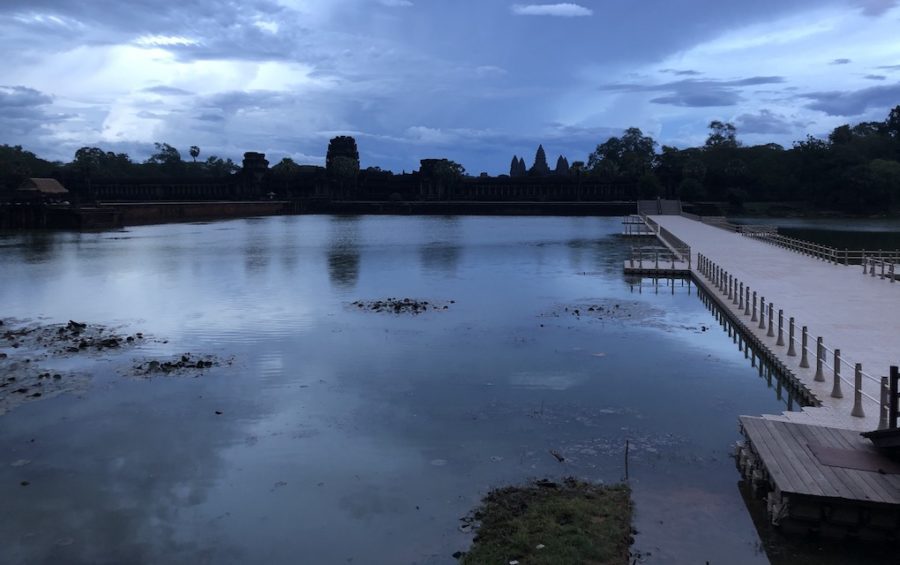The path for casino operator NagaCorp’s newly announced theme park near Angkor temple grounds was cleared five years ago when Prime Minister Hun Sen personally intervened to resolve a land dispute involving about 1,000 families.
Slakram commune, in Siem Reap city, had between 700 and 1,100 families feuding with Apsara Authority over land granted in 1995 to the authority, which oversees Angkor Archaeological Park. The long-time residents had resisted handing over their land to the authority.
But with a 2015 visit, Hun Sen ordered that a concession be carved out for residents, settling the dispute for most families. Remaining disputes have been tackled in the years since.
“With One Visit, Hun Sen Ends Twenty-Year Land Dispute,” the Cambodia Daily reported.
Khieu Sort, Slakram’s commune chief, said Hun Sen’s intervention helped clearly demarcate residents’ land from state land.
About 500 families is Boeng Donpa village and another 400 families in Thlok Angdoung received titles, he said.
“As we have solved all problems, there will be no complicated issues,” Sort said. “Here, that’s the difference: We planned it in advance and solved all disputes and fenced the land.”
“There is nobody living there,” he said. “There will be no involvement with the villagers.”
This week, NagaCorp, which operates Phnom Penh’s NagaWorld casinos under an exclusive license from the government, revealed its plan to create a 75-hectare “Angkor Lake of Wonder” theme park it compares to Disneyland.
The resort will feature hotels, a “China Town,” water park, indoor hi-tech theme park and ancient Angkorian-style canal system. Its first phase is expected to be complete by 2025, built in conjunction with an unnamed Chinese state-owned enterprise.
According to Forbes, NagaCorp executive director and controlling shareholder Chen Lip Keong, a Malaysian national, is worth about $4.7 billion. A report from 2017 in the Cambodia Daily linked Chen to Hun Sen’s son Hun Manith and the Khmer Times newspaper, a connection the paper’s publisher denied.
Defense Minister Tea Banh, who represents Siem Reap and has led the ruling party’s election efforts there, offered his congratulations for the development but said he did not know about it.
Provincial land management director Hy Say and Siem Reap city land management director Neav Sothy also said they did not know about the development.
Sun Chamnan, head of the provincial administration, earlier told VOD that the investment project had been in the works for a “long time.”
One resident in the area, Vang, 62, who declined to give her full name for fear of trouble with authorities, said the former land dispute had been hard work — collecting petitions and traveling to various authorities to make their appeal. She was happy about the new development, but only hoped that there would be no return to disputes.
“They can do any development as long as it does not impact people or take land from people,” Vang said.
Sar Vannara, provincial coordinator for rights group Licadho, said he hoped there would be proper compensation if any locals were impacted.
Apsara Authority director-general Sum Map said the project — which he emphasized did not allow gambling — should be a boon for the local community.
“It will provide a boost in jobs. It will benefit a labor force of thousands. It is a very good thing.”













